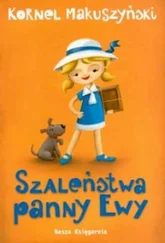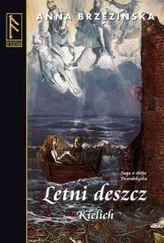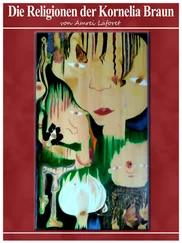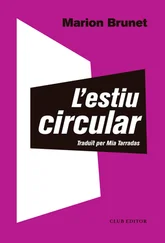When they reached the dim entrance hall of the school he turned pale and had an attack of “breathing difficulty.” As was his custom, he leaned on a pillar and hugged it to him with all his strength. His mother bent over him and asked what was the matter. He didn’t answer. Just held her hand tighter and tighter.
First grade was upstairs. His mother gave him a kiss outside a brown double door and made to leave. But he wouldn’t let go of her hand.
“I’m frightened,” he whispered.
“What’re you frightened of?”
“I’m frightened,” he repeated.
“Don’t be frightened, darling. Look, the others are here as well. Everybody’s here. Can’t you hear how happy they are? Go and see your little friends.”
“Stay,” he pleaded, and clung to his mother’s skirt.
Waving good-bye to her son with the hand that he had released, she slipped away from him and walked slowly down the corridor. At the corner she took out a handkerchief and wiped her eyes. She even looked back once to encourage him with her smile. But then she suddenly vanished.
The little boy stood for a while rooted to the spot and waited, waited, staring after his mother. He hoped that perhaps she’d come back and that the whole thing was a joke. But it was not a joke.
When he realized that, and also realized that he was alone, more alone than he’d ever been on this earth before, a spasm seized his entire body, something akin to colic. He tried to run away. He slunk along the wall as far as the stairs, where that skirt had just then mysteriously vanished into nothing. There a staircase yawned, completely unfamiliar and cheerless, with a cavernous, gray, echoing vault. To go down there would have called for death-defying courage. With the instinct of the damned, he thought it wiser to creep back instead to where he had lost her, back to the door of the classroom. At least he was a little bit used to that.
He peered in through the gap in the half-open door.
He could see children, more children than he’d ever before seen in one place. It was a crowd, a crowd of completely unknown little people like himself.
So he wasn’t alone. But if it had previously plunged him into despair that he was so alone in the world, now an even more alarming despair seized him, that he was so very much not alone in the world, that all those other people were alive as well. That was perhaps even more terrifying.
Everyone was chattering at the same time. What they were saying he couldn’t make out. The noise was a babble, fearsomely swelling, roaring like a thunderstorm.
While he was thus musing, someone — a grown-up whom he didn’t know — picked him up and put him in the classroom. There he stood, his little cap crooked on his head.
He expected some miracle to happen. He expected all those children to jump up and shout his name. Expected them to greet him, waving their handkerchiefs. Only the miracle didn’t happen. No one took any notice of him.
He took his cap off, greeting them politely. They didn’t return the greeting.
It was a room, not like other rooms where there were sofas and curtains, but frigid, official, bare. Daylight poured in through three large curtainless windows. A table stood guard on the dais. Behind that a blackboard, yellow sponge, white chalk. In front of it the abacus stood erect and haughty, like a mad thing. All around on the whitewashed walls were colored pictures of animals, a lion, a fox, and sheets of cardboard on which things could be read: man, animal, toy, work . In his agitation he read them all. He had been able to read from the age of four.
His classmates were now all sitting down. He too would have liked to sit somewhere.
The front benches, almost inevitably, were occupied by the children of the “gentry”—the sons of landowners, town councillors. These good-humored, fair-haired, chubby-cheeked little boys were wearing sailor suits, starched collars, silk ties. Their faces were like roses dipped in milk. They surrounded the dais politely but selfconsciously, as the government supporting a Party edict surrounds the prime minister’s velvet chair. He likewise considered himself a “gentry” child. He therefore forced onto his lips a stupid smile and approached them to take his seat on the front row. Only almost every seat there was already taken. They didn’t exactly hurry to make room for him. They muttered among themselves like close friends, and looked with cold civility and some surprise at this timid latecomer. Some even smiled, enjoying his discomfiture.
Ashamed and offended, he made his way toward the rear. If he couldn’t be first on the front bench — he thought — at least he would be last on the last. There at the back of the class the peasant children had taken their places, muscular, powerful lads, some barefoot, some in boots. They had unpacked their food from their red handkerchiefs. They were eating black bread and fat bacon with jackknives, and watermelon. He looked here and there. The stale smell that rose from their boots and clothes turned his stomach. But he would gladly have sat among them. He begged with his eyes to be accepted by them at least. He watched for a word to be spoken, a sign given. But these boys were otherwise engaged. They were throwing paper pellets and balls of paper filled with rinds of bacon and melon, and one such paper ball hit him on the forehead. The shock was greater than the damage, but he staggered against the wall. At that everyone laughed out loud, lower and upper houses alike, without distinction of party.
With rage and irritation in his heart he withdrew from there too. He didn’t know where to go, where he belonged. And so he went and stood alone by the stove. He felt ashamed at being so cowardly and gauche. From the stove he assessed the whole illiterate company with infinite disdain. If they only knew what he knew! He knew, for example, that the average temperature of a human was 98 degrees, and that anyone that had a temperature of 104 degrees was all but past saving. He knew that there was ordinary writing and shorthand. He knew that quinine was bitter and ipecacuanha sweet. He also knew that just then it was evening in America. But they didn’t know that he knew all that.
The little bell of the Red Ox tinkled melodiously in the little wooden tower on the roof, indicating that it was eight o’clock and lessons were about to start. While the bell was ringing, on and on, heartbreakingly, like the bell that mourns the dead, he took leave of everything that was dear, the rooms at home, the garden, and all his individual toys too, the soap bubbles and the balloons. Close to fainting, he clung to the cold tinplate stove.
Silence fell. The teacher had appeared in the doorway, a stout man with cropped dark gray hair and a very ample light gray suit. He took great strides, like an elephant. He rolled onto the dais.
The teacher asked the children one by one if they had slates and pencils, and then spoke of all the fine, noble, useful things that they were going to learn there. But then he suddenly stopped speaking. He had caught sight of the boy lurking beside the stove.
“Now then, what’re you doing there?” he asked, turning his great face in his direction. “Who put you there? Come over here.”
The little boy hurried, almost ran, to the dais. In terror, almost beside himself, he gabbled:
“Please let me go home.”
“Why?” inquired the teacher.
“I don’t want to come to school anymore.”
The class roared with laughter.
“Silence!” said the teacher. “Why don’t you want to come to school?”
“Because nobody likes me here.”
“Has anybody hurt you?”
“No.”
“Then why’re you talking such nonsense? Aren’t you ashamed of yourself, you little sissy? Just understand, you’re the same as everyone else here. No exceptions here, everybody’s equal. Understand?”
Читать дальше












